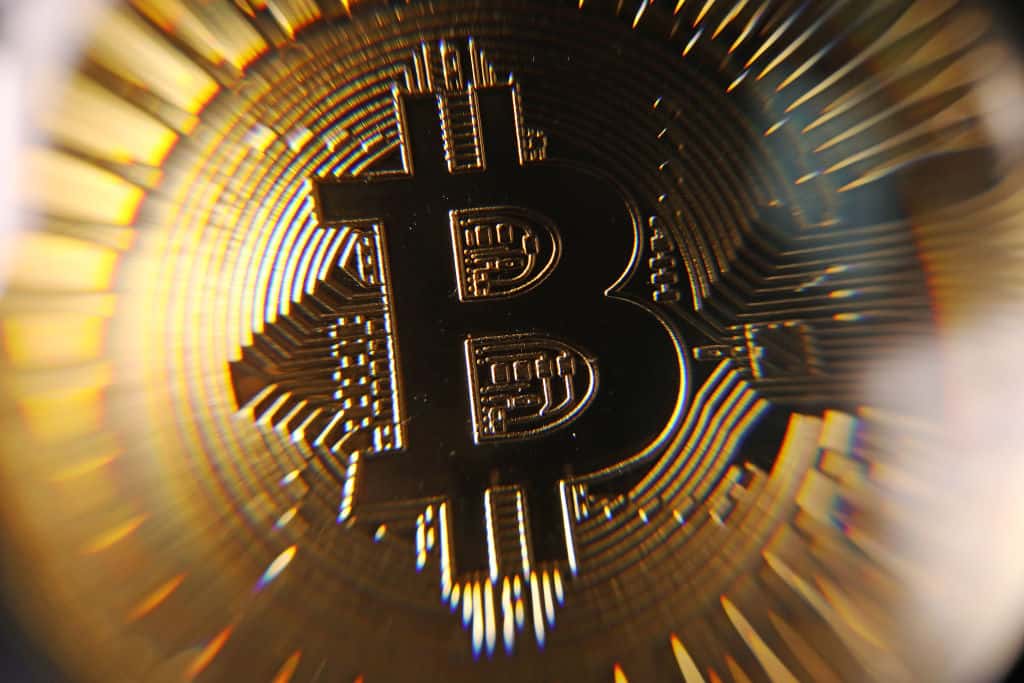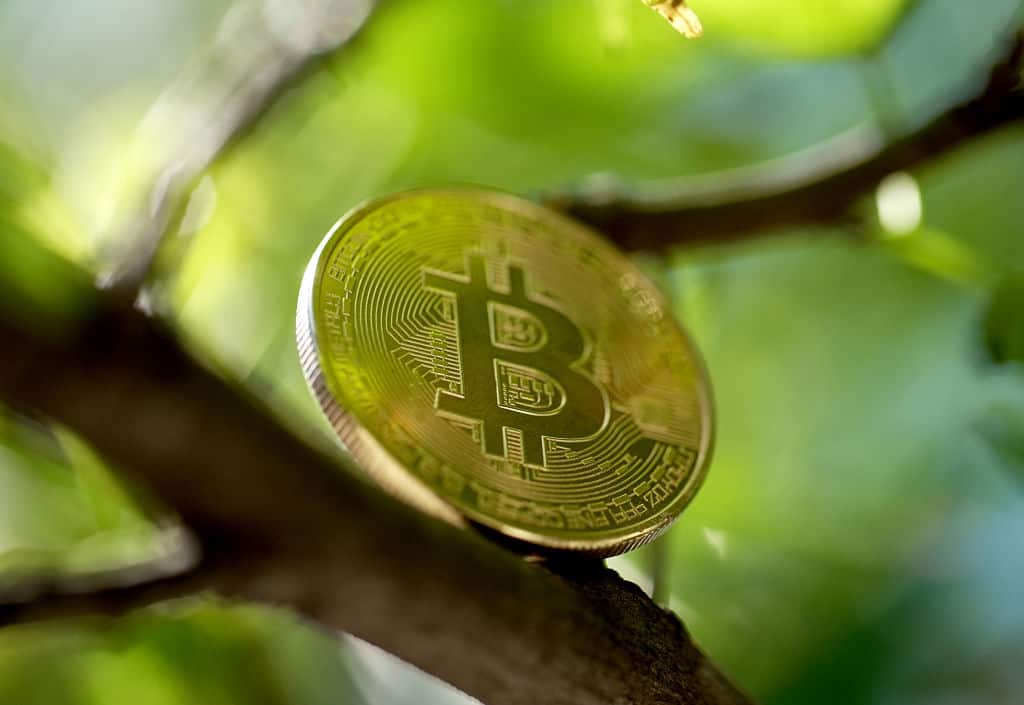In this issue
- Bitcoin: Rising again
- NFTs: Squid Game’s tentacles
- China crypto mining: Into history’s dustbin
From the Editor’s Desk
Dear Reader,
The digital asset space may be a notoriously difficult environment in which to make accurate predictions, but one respect in which it’s unfailingly reliable is its capacity for novelty and surprise.
Bitcoin, for instance, is a positively old-school token these days. But the original cryptocurrency has — as they say — still got it.
After spending much of last month fairly range bound, BTC has recovered its mojo in recent days to rally some 30% following an affirmation by the U.S. Federal Reserve that it will not seek to impose a China-like ban on crypto.
That’s come at a cost to investment in decentralized finance, which had benefited from Bitcoin’s plunge during the crypto market rout in spring. None of that is to say that DeFi is out of favor — merely that “old” crypto stalwarts such as BTC retain ample novelty to generate market momentum.
Novelty doesn’t get much fresher than one of the latest debuts on the non-fungible token scene: “Squid Game” NFTs, an unofficial spin-off of the eponymous South Korean Netflix TV series that are now changing hands for thousands of dollars.The “Squid Game” phenomenon is new on television, new in the NFT space, and new, it seems, to South Korea’s copyright watchdog, which has made some vague comments about potential infringements. For now, the country appears to lack specific measures to enforce intellectual property claims involving NFTs, so we’ll be watching for new regulatory developments, which could be precedent-setting, if somewhat predictable in their dampening effect, for the NFT sector.
It’s more than just a child’s game.
Until the next time,
Angie Lau,
Founder and Editor-in-Chief
Forkast.News
1. Bitcoin on the up again

By the numbers: Uptober — 5,000% increase in Google search volume.
Bitcoin’s price rose above US$57,000 this week, a five-month high following a precipitous decline in early May, as it led a surge in the crypto market. It is trading at US$55,092 at press time, and sits 15% shy of its all-time high of US$64,804 recorded in April this year.
- Bitcoin reserves on all exchanges reached a 12-month low of around 2.3 million BTC in late September and have since remained below 2.4 million BTC, according to data from CryptoQuant, showing a rise in holding sentiment among Bitcoin traders amid questions over the direction of U.S. fiscal policy.
- A number of analysts, including banks, are back with six-figure forecasts for Bitcoin, with crypto trader and analyst Rekt Capital writing on Twitter on Monday: “All data science models suggest that BTC will peak much higher than $100,000 in this cycle.”
- The performance of altcoins, however, has been mixed. According to a weekly CoinShares report published on Oct. 8, the total sum of crypto assets under management is only 5% away from all-time highs due to the recent positive price action, with Bitcoin seeing inflows of US$225 million, most of the total. Solana experienced inflows of US$12.5 million and Cardano saw US$3 million of fresh money, Ethereum suffered outflows of US$13.6 million, Polkadot shed $2.1 million, Ripple US$600,000 and Litecoin US$200,000.
- Despite the BTC rally, JPMorgan Chase Chairman and CEO Jamie Dimon remained dismissive of the coin, telling the audience of an Institute of International Finance event: “I personally think that Bitcoin is worthless,” before going on to emphasize that U.S. government regulation of the cryptocurrency sector was both imminent and necessary.
Forkast.Insights | What does it mean?
This year has been a game of two halves in the digital asset space. After Bitcoin hit record highs in May, prices dipped and decentralized finance took over. Cash sloshed into decentralized finance (DeFi) projects, bringing breakaway superstars such as Polygon and Solana into the limelight. Meanwhile, Bitcoin’s price went south. Now, the opposite is happening.
Bitcoin’s recent bull run has coincided with a decline in DeFi investment. The biggest DeFi projects have all been losing market cap since Bitcoin started its blistering run, according to CoinMarketCap data. The reason? Regulation.
The U.S. Securities and Exchange Commission has been pondering whether to approve even one out of the more than a dozen applications to open Bitcoin exchange-traded funds currently languishing in its in-tray. Investors are convinced it’s a case of when, not if, the regulator gives such ETFs a green light. In anticipation of the SEC’s approval, institutional money has poured into Bitcoin.
A regulated crypto market is what institutional investors have been waiting for, and Bitcoin is the first token in line. DeFi, however, with its decentralized organizational structure and its inbuilt embrace of unfettered trading, has proved a tougher challenge for policymakers. In the meantime, the big money is heading for BTC.
This isn’t to say DeFi is done for. The crypto story is evolving: DeFi is becoming a playground for young, ambitious retail investors willing to take a risk. Bitcoin, by contrast, is gaining a reputation among portfolio investors who prefer reasonable rates of return over fear of missing out and worries over seemingly endless volatility among many cryptos.
2. Copyright game

By the numbers: Squid Game — 5,000% increase in Google search volume.
Nearly 2,000 non-fungible tokens based on hit South Korean Netflix series “Squid Game” have been minted and are being traded on NFT marketplace OpenSea. The NFTs replicate a card that appears in the television series inviting the protagonist to join the game of the same name. The description of the NFTs on OpenSea says that each card is an “invitation to enter the adventurous and mysterious metaverse games,” pointing to the possible development of an off-brand “Squid Game” metaverse. However, details of any such metaverse or game remain unknown.
- The unidentified creator of the Squid Game NFTs wrote on their Twitter account that a total of 9,576 NFTs based on the cards will be minted, issued in 21 batches. OpenSea users can obtain the “Squid Game” NFTs at no cost other than the network fees incurred in claiming them. The NFTs are now being traded for value among fans, with at least one priced at more than 3 Ether.
- The Squid Game NFTs bear no signs of being official Netflix merchandise, or links to the streaming TV operator or the producers of the show, which may hint at a copyright issue. The Korea Copyright Commission wrote in a report on NFTs earlier this year that the issuance of NFTs created or owned offline by another person or entity could constitute copyright infringement, but South Korea currently does not have any specific copyright infringement laws related to NFTs.
Forkast.Insights | What does it mean?
NFTs are rapidly rewriting the rules of internet culture by creating a heady mix of code, cash and community, and allowing anyone to buy in.
A few weeks ago, crypto Twitter was abuzz over Loot, a mysterious NFT project that had no rules, no plot, and not even a game to play in. It was simply a list of items that people could buy and store in their wallets.
These crypto “primitives” — simple pieces of code dropped onto a ledger — prompted a flurry of buying and selling, and the development of an entire ecosystem designed to incorporate the all-but-imaginary items into some type of gaming landscape.
At their peak, “loot bags” as the lists came to be known, were trading hands for as much as US$800,000 apiece within a week of their launch. “Squid Game” NFTs represent the next step in this type of development.
Communities are now using blockchain technology to create experiences that can be commoditized and monetized in hours, inviting all and sundry to add to — and potentially profit from — the experience, often without the permission of original creators.
That poses a dilemma for big content businesses such as Netflix: Embrace the popularity of content in all its forms, or try to control it? If history is any guide, the prospect of success in exercising such control seems distant for companies that try to stop the internet from having its way.
3. China mining’s one-word obituary

Following Beijing’s latest effort to ban crypto, the country’s top economic planner has proposed categorizing the sector as “outdated.” The country’s National Development and Reform Commission and the Ministry of Commerce are now soliciting public comment on their latest draft “negative list” for market access. If, as expected, crypto is designated an obsolete industry, it could face even harsher restrictions than those already in place.
- Chinese crypto mining rig maker Bitmain is among the latest to take action to put some distance between itself and the authorities. As of Monday, it had stopped delivering mining machines to clients in China, and it is planning to contact those who signed up for long-term purchasing plans to set up alternative arrangements, according to a social media post the company put out on Sunday.
- Matrixport, a Singapore-based digital asset financial services platform founded by Jihan Wu — who also co-founded Bitmain — announced on Monday that it would stop offering services to users in China starting from Oct. 15. It said it had stopped registering new users in the country in June and no longer supported know-your-customer registrations by parties with Chinese identity documents.
- Meanwhile, crypto exchange MEXC said on Monday that it had stopped onboarding new users in China on Sept. 28, and that it planned to deregister users based in China by the end of the year.
Forkast.Insights | What does it mean?
China’s loss has become others’ gain, at least in crypto. The culmination of Beijing’s years-long campaign against cryptocurrency traders, miners and mining rig makers has led to miners’ de facto expulsion from the country.
China’s displaced miners have quickly found new homes in central Asian states such as Kazakhstan, and in the U.S. and elsewhere, alongside exchanges and other businesses in the crypto sector.
Industry watchers had predicted that China’s crushing of its domestic crypto sector and severing of links to the industry offshore would lead to a slump in prices and hurt the value of tokens. Yet the opposite has taken place. Prices have risen since China’s blanket ban was announced last month. Bitcoin mining ability — as measured by hashrate — was also expected to suffer, but it has recovered to 2020 levels.
China’s dominance of the crypto markets before the ban had been seen as a threat to crypto’s decentralization. With so many miners based in China, some experts suggested that Beijing could have seized control of the Bitcoin ledger to clamp down on capital flows. China has instead taken a different approach.
Beijing sees its development of a homegrown central bank digital currency — the digital yuan, or e-CNY — as the key to dominating digital money, and it is protecting the fledgling currency by banning its rivals. Although China’s authorities have given up the country’s dominance of mining, Beijing remains streets ahead of any of its would-be rivals in the central bank digital currency space, which it is doubtless betting will boost its ability to leverage its way into the exclusive club of international reserve currencies.




